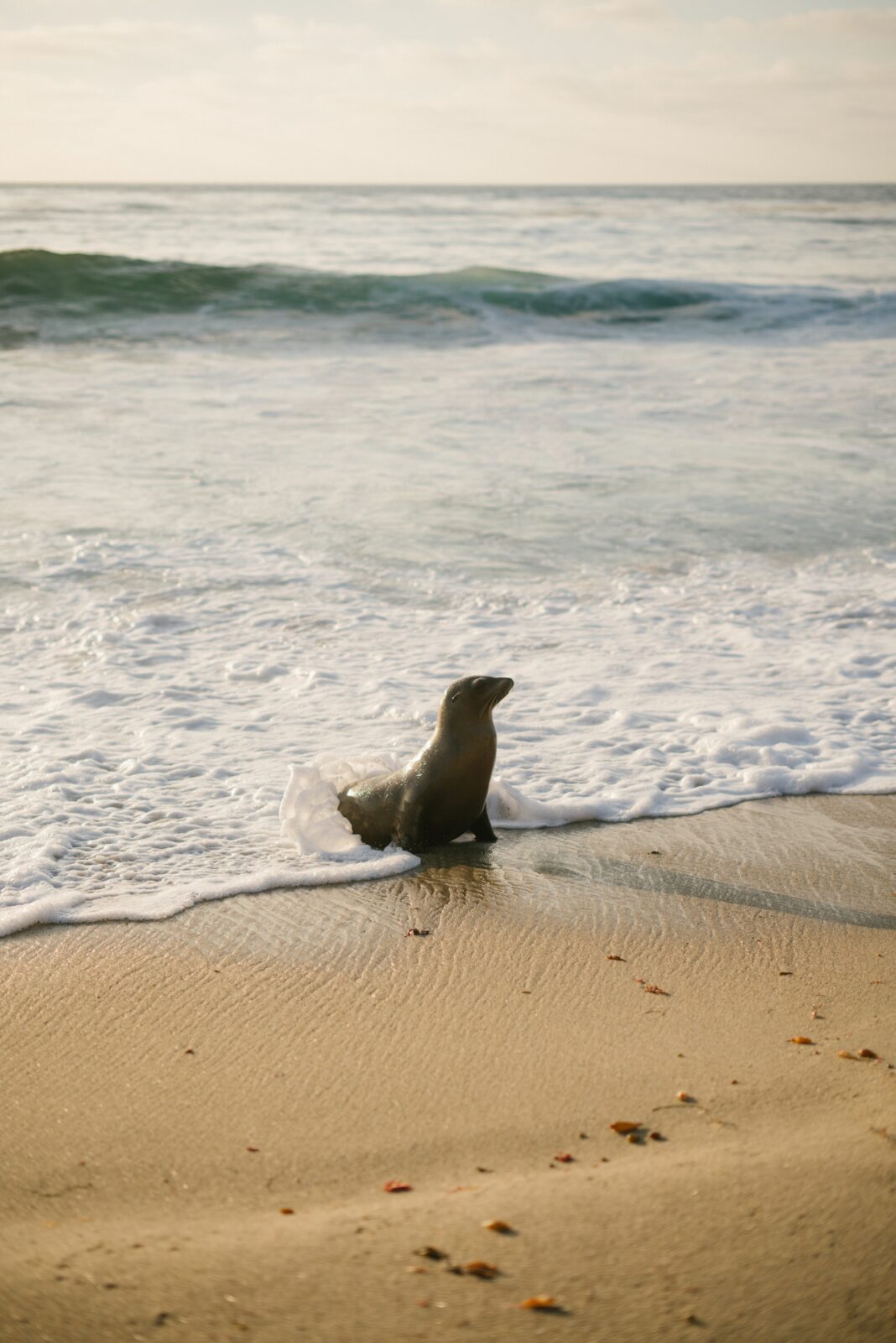CALIFORNIA—Since the beginning of the month of June, sick and dying sea lions and dolphins have been washing up on beaches along California’s coastline.
According to the National Oceanic and Atmospheric Administration (NOAA Fisheries), there have been over a thousand reports of sick and dead sea mammals washing ashore between June 8 and June 14.
NOAA employs a Marine Mammal Health and Stranding Response Program that coordinates emergency responses to sick, injured, distressed, or dead marine mammals.
The spike in marine-life illness is believed to be caused by a highly concentrated algae bloom affecting ocean waters from Orange County to San Luis Obispo County, according to NOAA. Experts are currently awaiting test results for confirmation.
The algae produces a neurotoxin known as domoic acid, which travels up the food chain, primarily affecting sea lions. The neurotoxin is collected by small fish, like sardines and anchovies, eaten by predators in large quantities, causing domoic acid poisoning, according to the Marine Mammal Center.
In 1998, the Marine Mammal Center diagnosed the first case of domoic acid poisoning in marine mammals due to a large outbreak in California sea lions.
Local marine animal rescue organizations are overwhelmed by the number of sea animal illnesses and deaths.
“We are managing more than 200 reports of marine mammals in distress each day. We are doing the best we can to keep up with the intense pace,” said Channel Islands Marine and Wildlife Institute (CIMWI) Co-Founder and Managing Director, Ruth Dover in a statement.
CIMWI is run primarily by a team of volunteers dedicated to “marine mammal rescue, rehabilitation, research and education to promote ocean and human health.”
“I have never seen anything this intense in terms of the numbers of animals in my 20 years of responding to strandings in this area,” Michelle Berman Kowalewski, founder and Director of the Channel Islands Cetacean Research Unit, told NOAA.
According to the Marine Mammal Center, domoic acid attacks the brain and the heart causing seizures and heart failure. Sea lions and dolphins will exhibit symptoms of lethargy, disorientation, and seizures.
Beachgoers are advised by officials to stay away from stranded sea animals suspected of domoic acid poisoning. Pets should also steer clear; they are susceptible to carrying the toxin or contracting other diseases that can be harmful.
Humans can become ill with a condition called Amnesic Shellfish Poisoning if they consume seafood contaminated by domoic acid, though commercial seafood is routinely tested before it makes its way to stores and restaurants.
The California Department of Health released an advisory on June 16, warning “consumers not to eat sport-harvested mussels, clams, or scallops from Santa Barbara County.” The high levels of algae in the area have deemed the shellfish unfit for human consumption.
The public can report stranded sea lions, dolphins, and other marine mammals to the CIMWI West Coast Region Stranding Hotline at (866) 767-6114. For stranded live animals in Ventura and Santa Barbara Counties, residents should call Channel Islands Marine & Wildlife Institute’s Rescue Hotline at (805) 567-1505. For dead whales and dolphins in those counties, people should call Channel Island Cetacean Research Unit at (805) 500-6220.






